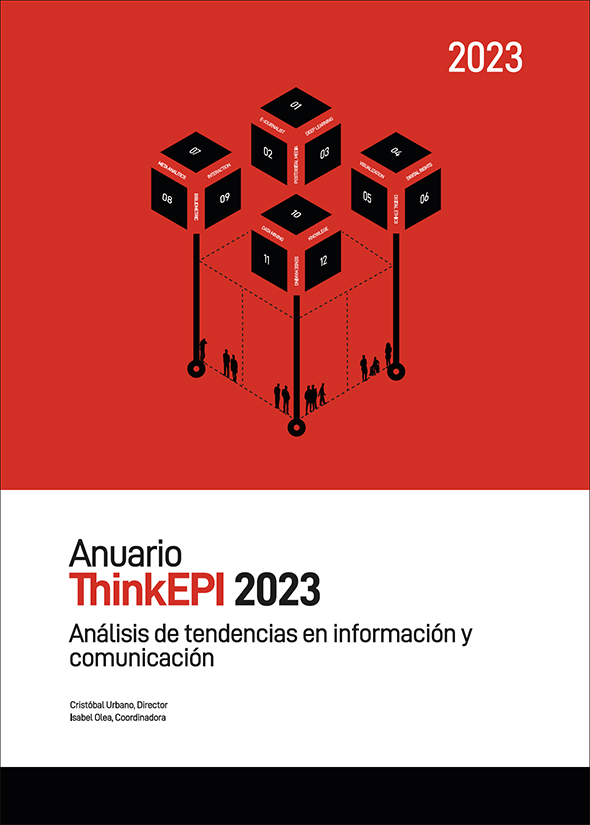Filter bubbles and personal algorithm management
DOI:
https://doi.org/10.3145/thinkepi.2023.e17a10Keywords:
Filter bubbles, Echo chambers, Political polarization, Disinformation, Psychology of information, Aggregators, Social media;, AlgorithmsAbstract
The main meta-analyses on filter bubbles and echo chambers are reviewed, and it is shown that there is little evidence of the existence of both. It is concluded that although the popular image of filter bubbles and eco chambers has little foundation, a greater vigilance of citizens towards the possible effects of algorithms is necessary for the future.
Downloads
References
Bruns, Axel (2019). Are filter bubbles real? Polity Press.
Dutton, William H (2017). "Fake news, echo chambers and filter bubbles: Underresearched and overhyped". The conversation, 5 mayo. https://theconversation.com/fake-news-echo-chambers-and-filter-bubbles-underresearchedand-overhyped-76688
Eady, Gregory; Nagler, Jonathan; Guess, Andy; Zilinsky, Jan; Tucker, Joshua A. (2019). "How many people live in political bubbles on social media? Evidence from linked survey and Twitter data". SAGE Open. https://doi.org/10.1177/2158244019832705
Graham, David A. (2019). "Some real news about fake news". The Atlantic, 7 enero. https://www.theatlantic.com/ideas/archive/2019/06/fake-news-republicans-democrats/591211
Lardieri, Alexa (2019). "Older people more susceptible to fake news, more likely to share it". U. S. news, 9 enero. https://www.usnews.com/news/politics/articles/2019-01-09/study-older-people-are-more-susceptible-to-fake-news-more-likely-to-share-it
Moeller, Judith (2021). "Filter bubbles and digital echo chambers". In: Tumber, Howard; Waisbord, Silvio. The Routledge companion to media disinformation and populism. Routledge. ISBN: 978 0367435769
Moeller, Judith; Helberger, Natali (2018). Beyond the filter bubble: Concepts, myths, evidence and issues for future debates. University of Amsterdam. https://www.ivir.nl/publicaties/download/Beyond_the_filter_bubble__concepts_myths_evidence_and_issues_for_future_debates.pdf
Oremus, Will (2016). "How many people really get their news from Facebook?". Slate, 20 diciembre. https://slate.com/technology/2016/12/how-many-people-really-get-their-news-from-facebook.html
Oremus, Will (2017). "The filter bubble revisited". Slate, 5 abril. https://slate.com/technology/2017/04/filter-bubbles-revisited-the-internet-may-not-be-driving-political-polarization.html
Pariser, Eli (2017). El Filtro burbuja: cómo la red decide lo que leemos y lo que pensamos. Barcelona: Taurus.
Ross-Arguedas, Amy; Robertson, Craig T.; Fletcher, Richard; Nielsen, Rasmus-Kleis (2022). Echo chambers, filter bubbles, and polarisation: a literature review. Reuters Institute. https://reutersinstitute.politics.ox.ac.uk/echo-chambers-filter-bubbles-and-polarisation-literature-review
Zuiderveen Borgesius, Frederick J.; Trilling, Damian; Moeller, Judith; Bodó, Balázs; De-Vreese, Claes H.; Helberger, Natali (2016). "Should we worry about filter bubbles?". Internet policy review, v. 5, n. 1. https://policyreview.info/articles/analysis/should-we-worry-about-filter-bubbles
Downloads
Published
How to Cite
Dimensions


